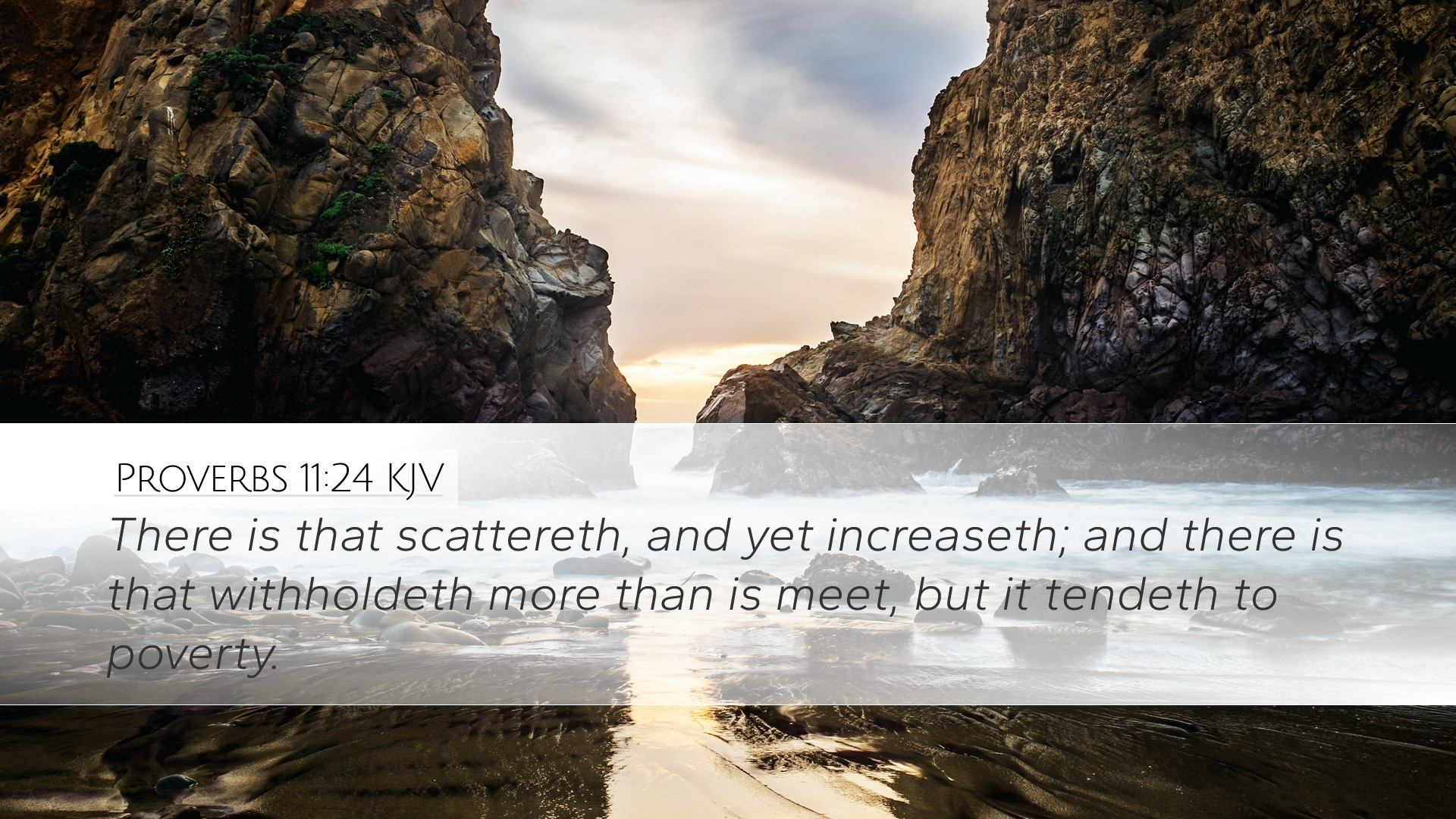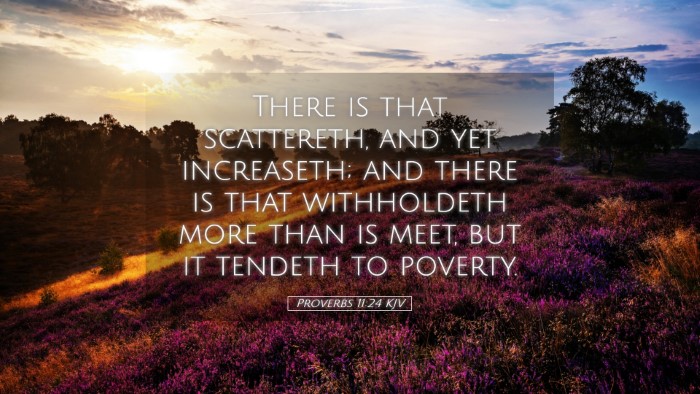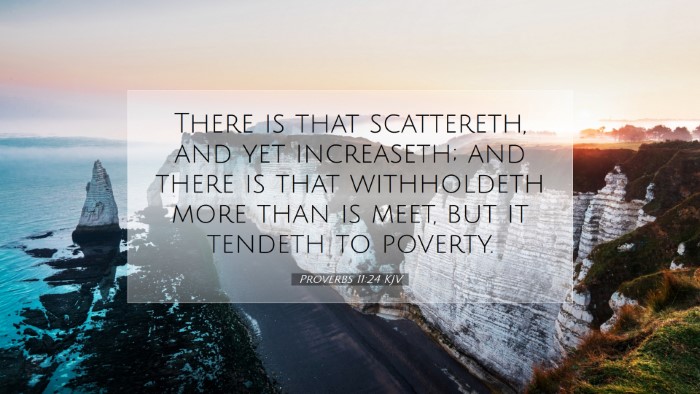Commentary on Proverbs 11:24
Verse: Proverbs 11:24 - "There is that scattereth, and yet increaseth; and there is that withholdeth more than is meet, but it tendeth to poverty."
Introduction
This verse from the Book of Proverbs presents a profound insight into the nature of generosity and the paradox of wealth accumulation. As we explore this verse, we find the rich tapestry of wisdom woven by the ancient sages, inviting reflection on the spiritual and practical implications of giving and withholding.
Exegesis of the Verse
In examining this verse, we note that it presents two contrasting behaviors regarding wealth: the act of scattering (giving generously) and withholding (being miserly). Each behavior is associated with a distinct outcome regarding prosperity and poverty.
- "There is that scattereth, and yet increaseth": This phrase suggests that those who are generous and share their wealth ultimately experience increased blessings. The act of scattering can be interpreted as giving to the needy, supporting charitable works, or investing in the community.
- "and there is that withholdeth more than is meet": This part highlights the tendency to hold back, to cling to one's possessions and material resources, even when such withholding is excessive and unjustified.
- "but it tendeth to poverty": The result of overly frugal behavior is not prosperity, but poverty. This statement embodies a divine truth that defies worldly wisdom—hoarding leads to lack, while generosity leads to abundance.
Insights from Matthew Henry
Matthew Henry comments on this verse by emphasizing the apparent paradox in God’s economy. He proposes that God honors those who are open-handed with their resources:
- Henry notes that the expression "scattereth" implies a readiness to share, placing priority on the needs of others.
- He expounds on the concept that those who give generously often find themselves receiving blessings in unexpected ways, reinforcing the biblical principle that "it is more blessed to give than to receive" (Acts 20:35).
- Henry warns against the folly of those who hoard wealth, reminding us that the heart of such behavior is often rooted in fear, insecurity, and a lack of faith in God's provision.
Reflections from Albert Barnes
Albert Barnes provides a practical application of this proverb, asserting that a generous spirit is essential in the life of a believer:
- Barnes elaborates on the idea that "to scatter" refers not only to financial resources but also to time, talents, and gifts, encouraging believers to invest themselves in the lives of others.
- He examines the broader implications of this principle, noting that God's blessings are often proportionate to our willingness to give. He cites examples from both Scripture and life where generosity resulted in unexpected returns.
- Barnes cautions against the delusion that withholding leads to security, emphasizing that God's economy operates on principles far removed from human reasoning.
Adam Clarke's Plea for Generosity
Adam Clarke's commentary offers deep theological insights and practical exhortations:
- He suggests that this verse speaks to a universal truth: material wealth is transient, but acts of kindness create lasting legacies.
- Clarke reflects on the character of God as the ultimate giver, and how believers are called to emulate this divine trait in their lives, urging them to cultivate a generous heart.
- He warns that the act of withholding can stem from selfishness and fear, detracting from communal well-being and spiritual growth.
Theological Implications
The theological significance of Proverbs 11:24 revolves around the nature of God, provision, and the ethical dimensions of wealth:
- God as Provider: The verse underscores the belief that God supplies all needs according to His riches in glory (Philippians 4:19), so withholding is unnecessary and detrimental.
- The call to Community: This verse serves as a reminder of the communal responsibility to care for one another. Increased blessings may come through communal trust and shared resources.
- The paradox of giving: By giving, believers not only encounter greater blessings but also reflect the heart of Christ whose nature exemplifies sacrificial love.
Practical Applications
In light of the rich insights from various commentaries, several practical applications emerge from Proverbs 11:24:
- Evaluate Your Stewardship: Regularly assess how you manage your resources—financial, time, and talents. Are you generous or are you withholding?
- Engage in Generosity: Challenge yourself to identify areas where you can give, whether that be through donations, volunteering, or acts of kindness.
- Teach Generosity: Use this verse as a foundation to teach others within your church or community about the blessings of giving and the dangers of selfishness.
Conclusion
Proverbs 11:24 serves as a key reminder of the wisdom of generosity and its divine rewards. As we reflect on the insights from esteemed commentaries, we are encouraged to embrace a lifestyle of scattering rather than withholding—a call to embody the generous heart of our Creator and to trust in His unfailing provision.


